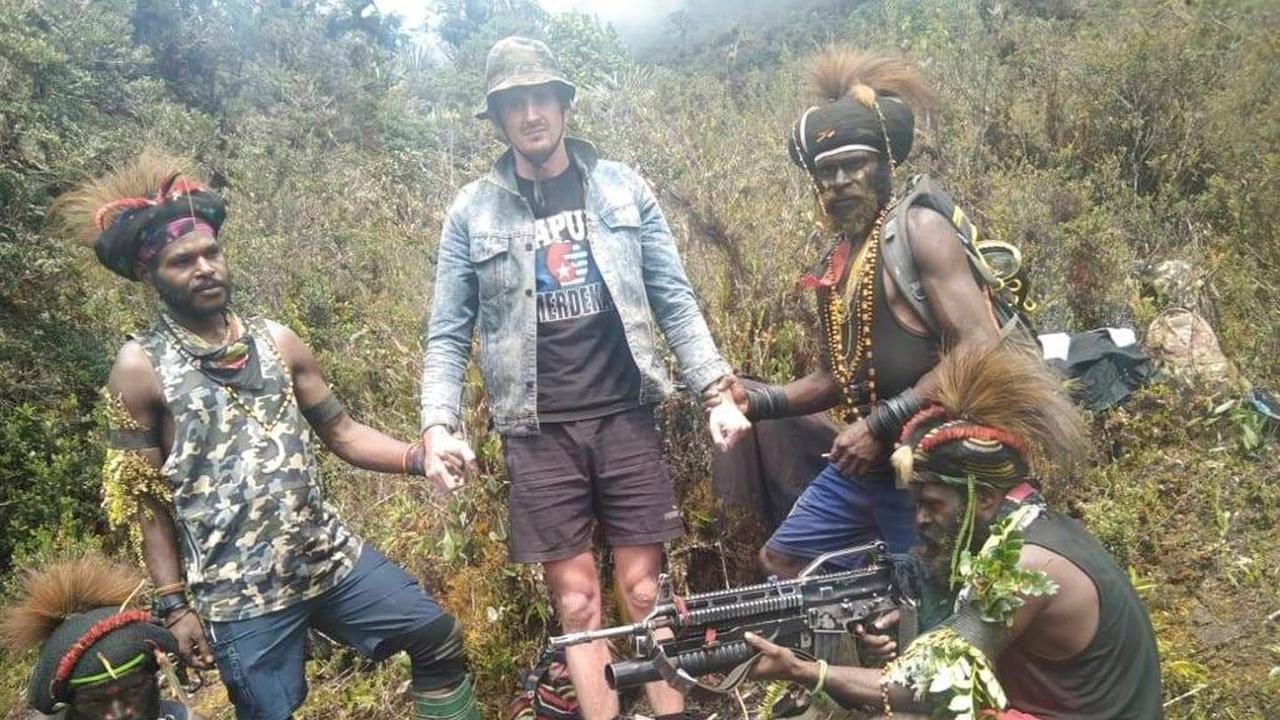Rebel fighters in Indonesia’s Papua region have released eerie photos and footage of a New Zealand pilot they took hostage last week.
Captain Philip Mehrtens was kidnapped after touching down in Paro village on February 7.
The Susi Air pilot was there to pick up 15 construction workers who had been building a health centre in the remote Papua province.
The rebel group set fire to the plane and released all five passengers on board the flight but held onto Mehrtens, demanding that Indonesia recognise Papua’s independence.
In a series of videos, released to The Associated Press, a man understood to be Mehrtens is surrounded by rebels holding rifles, spears, and bows and arrows.
“Indonesia must recognise Papua is independent,” he says in one, seemingly under duress.
“I took him hostage for Papua independence, not for food or drinks,” Rebel leader Egianus Kogoya says in another one of the videos.
“He will be safe with me as long as Indonesia does not use its arms, either from the air or on the ground.”
Indonesian officials are making efforts to secure the Kiwi pilot’s release.
The region has seen an increase in violence in the past year, with dozens of rebels, security forces, and civilians killed.
The West Papuan National Liberation Army (TPNPB), responsible for the kidnapping, has also issued a warning to Australia.
“This pilot is a citizen of New Zealand,” a statement from Sebby Sambom, a spokesman for the TPNPB armed wing, said last week.
“TPNPB considers New Zealand, Australia, Indonesia, America, Europe, all are responsible. The US, Europe, Australia and New Zealand has supported the Indonesian government, trained The Indonesian National Police, supplied weapons to kill us West Papuans from 1963 to today. They must be held accountable.”
The group claimed that it would hold Mehrtens captive until the Indonesian government recognises the independence of West Papua.
Conflict between indigenous Papuans and Indonesian security forces is common in the impoverished Papua region.
The region, a former Dutch colony in the western part of New Guinea that is ethnically and culturally distinct from much of Indonesia, has been simmering with a low-level insurgency since its incorporation into Indonesia in 1969.
The conflict has been fuelled by economic exploitation, political repression, and human rights abuses.
Flying is the only practical way of accessing many areas in the mountainous region, making pilots like Mehrtens vulnerable to attacks.
While the Indonesian government maintains that Papua is part of its unitary state, separatists argue that the region has been denied the right to self-determination.
The conflict has led to a humanitarian crisis, with many Papuans living in poverty and facing discrimination.
More Coverage
The Indonesian government’s efforts to secure Mehrtens’ release involve community leaders, including tribal and church figures, to build communication and negotiate with the rebels. Papua police chief Mathius Fakhiri earlier stated that they are working to secure Mehrtens’ freedom.

